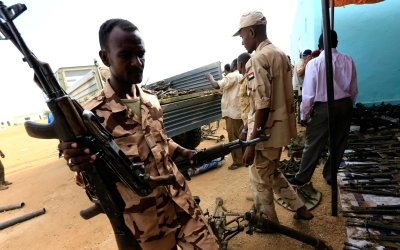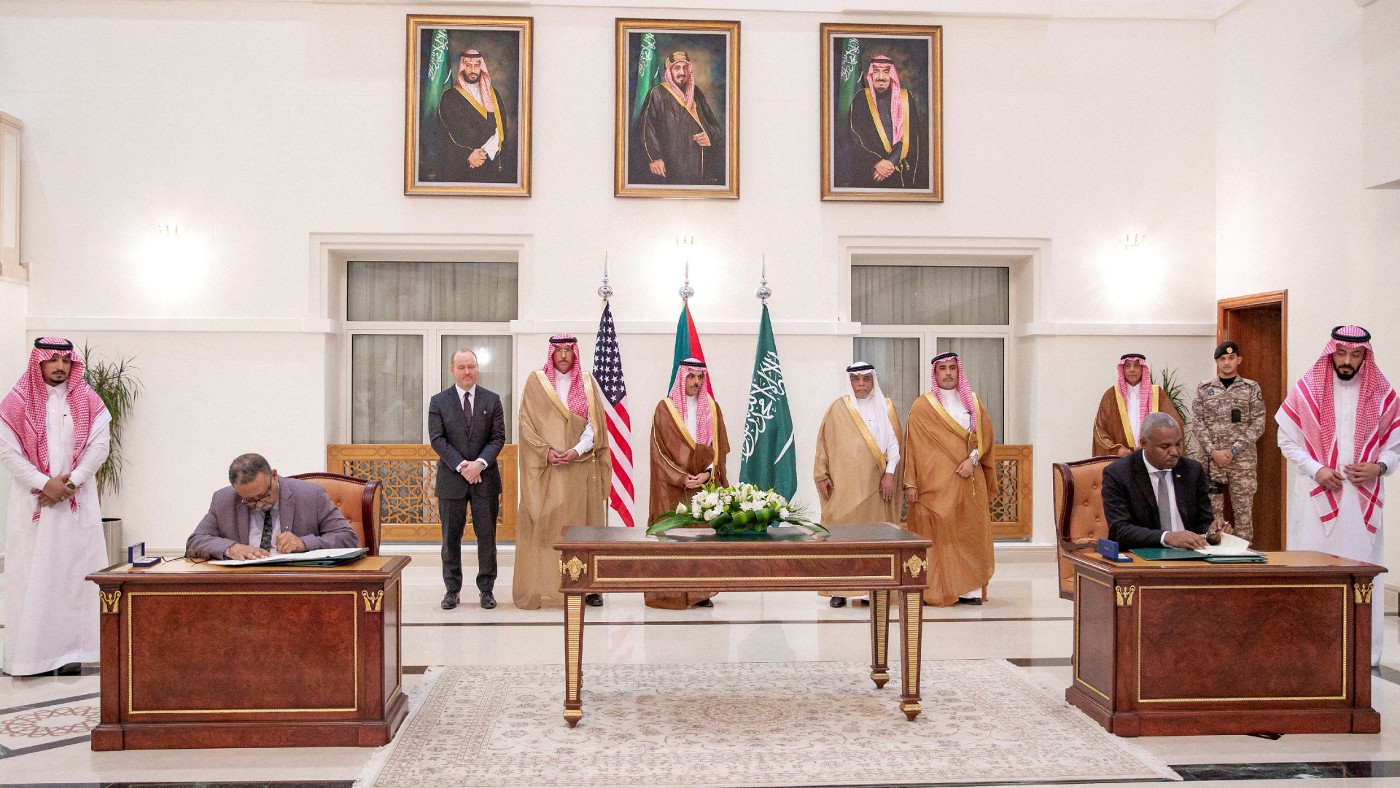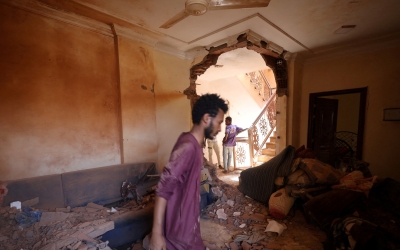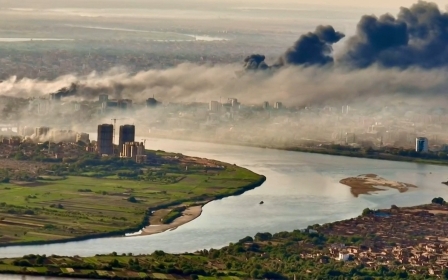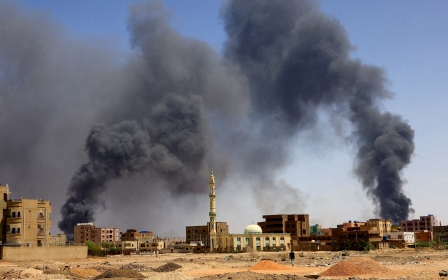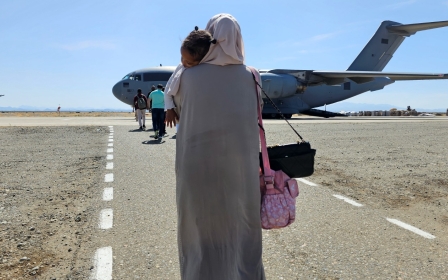Sudan: Sexual violence and killings in Darfur ahead of ceasefire
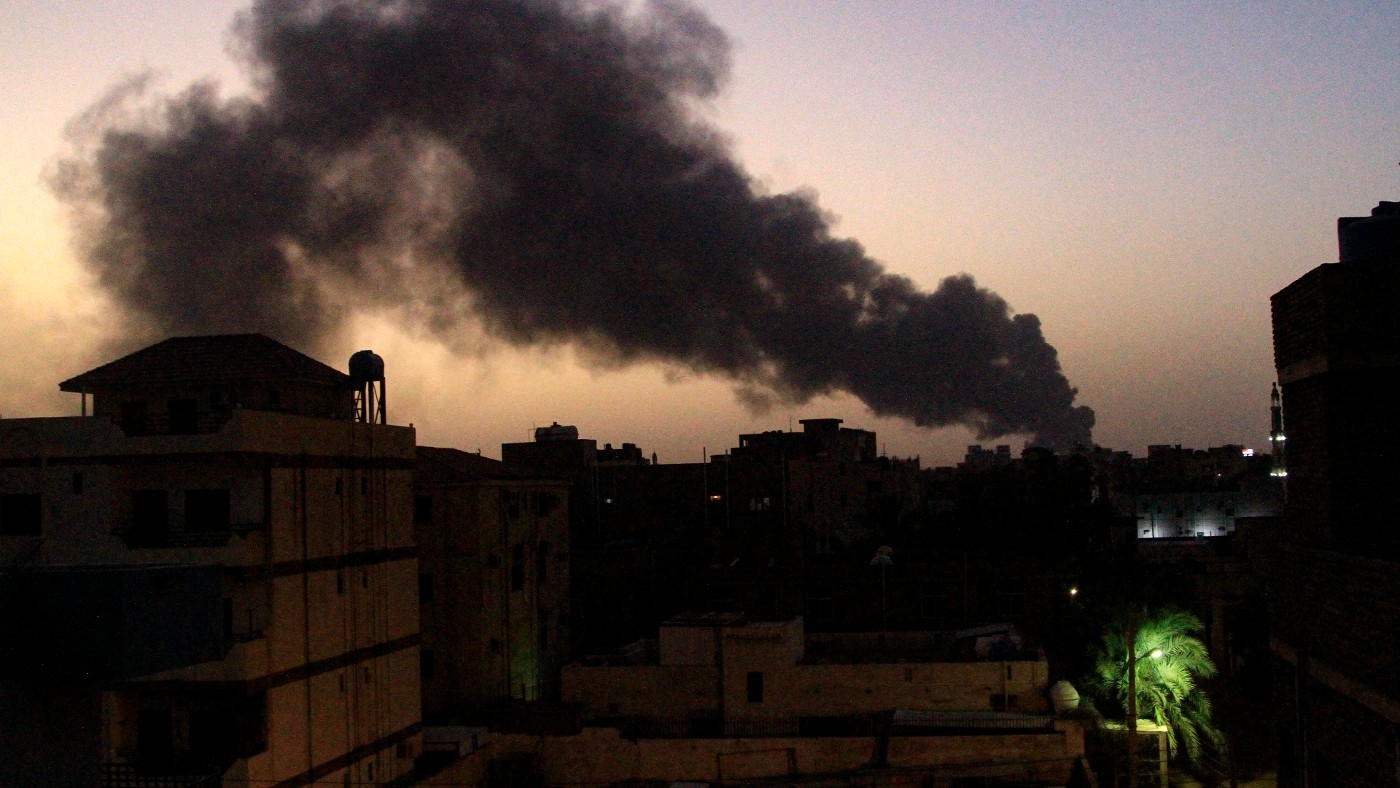
Men wearing uniforms similar to those of Sudan's Rapid Support Forces (RSF) and driving cars with the paramilitary's number plates sexually assaulted 24 women and girls in Nyala, the capital of South Darfur, local activists told Middle East Eye.
The women, the youngest of whom is 14, were taken to Nyala's Aldaman Hotel, where men who had fled the fierce fighting in the city sexually assaulted them for three days. Some of the victims managed to escape.
Since the war between the RSF and the Sudanese army began on the morning of 15 April, there have been reports of sexual assault, looting, robbery and violent assaults taking place.
At least 11 attacks on humanitarian premises in Khartoum and four new attacks against health facilities have been reported since the signing of the Jeddah declaration on 11 May, the UN's humanitarian agency said on Sunday.
Over a million people have been displaced since the conflict began, fleeing to safer locations inside and outside Sudan.
New MEE newsletter: Jerusalem Dispatch
Sign up to get the latest insights and analysis on Israel-Palestine, alongside Turkey Unpacked and other MEE newsletters
Outside Khartoum, the worst fighting has occurred in Darfur, which has been in a state of conflict for almost the whole of the 21st century.
Clashes in El Geneina, capital of the West Darfur region, have escalated, displacing at least 85,000 people and leaving citizens without access to healthcare, water and basic supplies, the UN said.
Local activists in Nyala told MEE there had been "cases of gang rape".
Survivors of the attacks told the activists that the "perpetrators wore uniforms similar to those of the Rapid Support Forces, and rode in cars bearing RSF plates".
The activists said "there were 24 cases of women and girls of different ages, between 14 and 56 years of age, being raped".
"They were raped by escapees from the Rapid Support Forces inside the Aldaman Hotel and at other locations nearby," the activists told MEE.
"A number of them managed to escape. The rest stayed for three days. The girl of 14 was very badly hurt."
Eighteen of the girls and women were treated with injections, antibiotics and Panadol at a secret local clinic following the abuse. They were also seen by a social worker.
"The remaining cases refused to comply with examination and receive treatment in addition to psychological support," the Darfuri organisers told MEE.
Medical personnel face a number of problems when trying to coordinate treatment, including finding transportation and organising safe routes.
The RSF has also been accused of looting markets and shops across South Darfur.
MEE has asked the paramilitary to respond to the allegations of gang rape.
Ceasefire agreement
Sudan's deadly conflict continued on Sunday following an agreement the day before in Saudi Arabia for a short-term ceasefire between the country's warring parties.
Eyewitnesses in Khartoum and across Darfur told Middle East Eye that clashes between the army and the RSF were ongoing.
The seven-day ceasefire struck in Jeddah following talks mediated by the United States and Saudi Arabia is the seventh to be agreed since the conflict began on the morning of 15 April. It is the first to have been signed by both warring sides.
The ceasefire is to take effect at 9.45pm Khartoum time on Monday. It is meant to facilitate the passage of humanitarian aid into the Sudanese capital and to lead to the RSF vacating hospitals and other facilities, such as water and power plants.
"Your armed forces announces its commitment to the text of the agreement and hopes that the rebel militia will do the same," a Sudanese army spokesperson said in a statement on its Facebook page.
The Forces for Freedom and Change civilian coalition welcomed the ceasefire.
There is no enforcement mechanism included in the ceasefire, meaning that it relies on the goodwill of the two sides, who have so far appeared to be motivated primarily by a desire to wipe one another out.
With no external monitoring on the ground and no mention of targeted sanctions from the US, "it's hard to see that it will make much difference", said Patrick Smith, editor of Africa Confidential.
"It's something for the relief agencies to wave when they want to deliver supplies."
Hemeti replaced after over a month
Saturday's ceasefire agreement followed the removal of RSF chief Mohamed Hamdan Dagalo as deputy of Sudan's sovereign ruling council.
Dagalo, known as Hemeti, had somehow remained Sudan's deputy leader through almost five weeks of war with the country's de facto leader, General Abdel Fattah al-Burhan.
Malik Agar, whose rebel faction signed the Juba peace agreement of 2020 involving various armed groups, has replaced Hemeti, becoming in Burhan's absence the de facto leader of Sudan.
Finance Minister Gibril Ibrahim was rumoured to have been appointed prime minister, but MEE understands that, for now, these rumours are not true.
Kholood Khair, Sudanese political analyst and director of the Khartoum-based Confluence Advisory think tank, told MEE that the promotion of armed rebel leaders to the pinnacle of government represented a "continuation of Sudan's militarised politics".
The rebel groups that signed the Juba agreement were meant to have laid down their arms. This never happened.
"In fact," Khair said, "there are reports that they have been recruiting since the peace agreement because they effectively became legitimate - no longer rebels."
Khair said that Agar's promotion over army leaders was a ploy by Burhan to "get the rebel groups away from Hemeti, who could offer them very lucrative positions and futures".
In order to counter this temptation, Agar and other rebel leaders had to be offered something big.
"And so Malik becomes second-in-command and in the absence of Burhan becomes the de facto head of state," Khair told MEE. "This is, effectively, a way of making the war work for the rebel groups.
"This is absolutely a continuation of Sudan's militarised politics. That if you pick up a gun, you can go far. And that if you keep the gun even after a peace agreement, you will continue to have good options."
Middle East Eye delivers independent and unrivalled coverage and analysis of the Middle East, North Africa and beyond. To learn more about republishing this content and the associated fees, please fill out this form. More about MEE can be found here.


